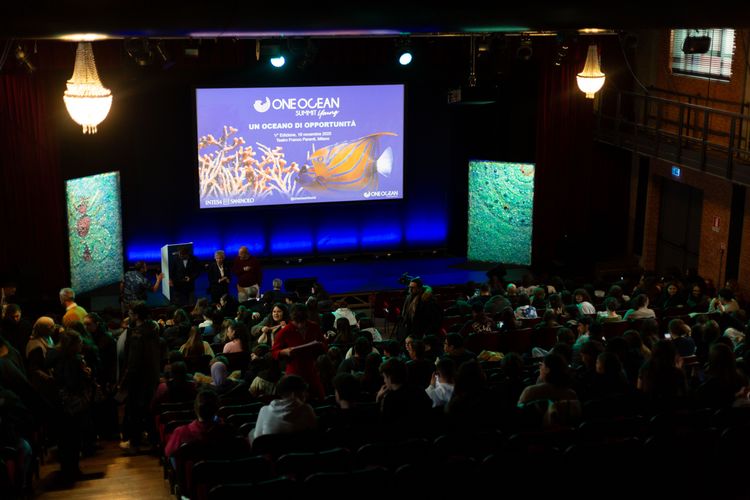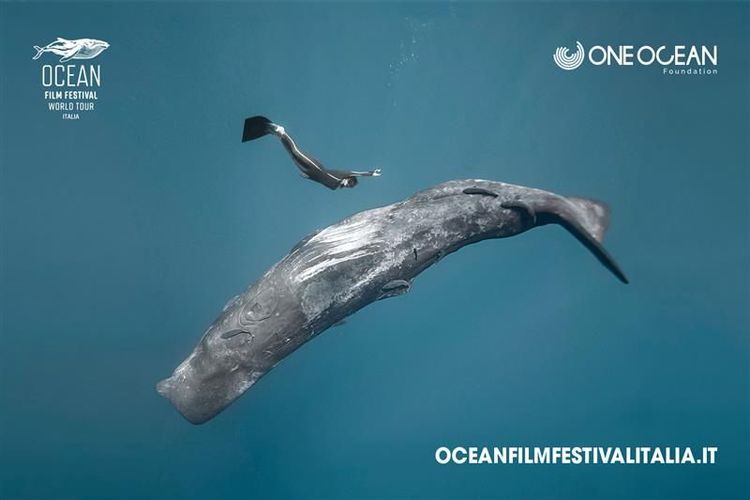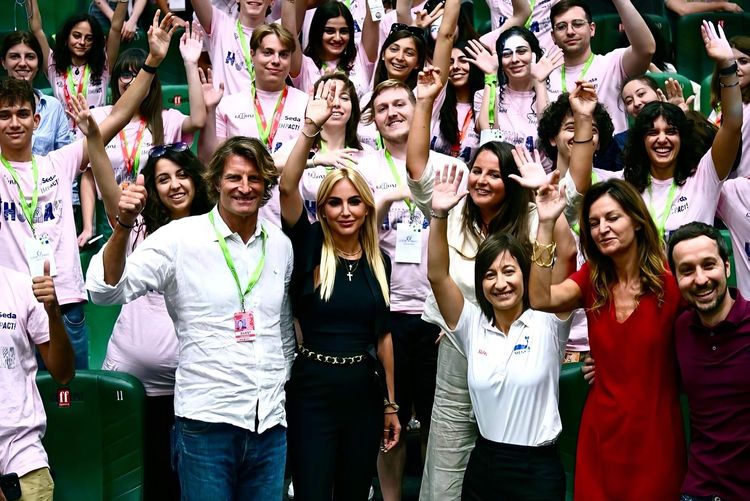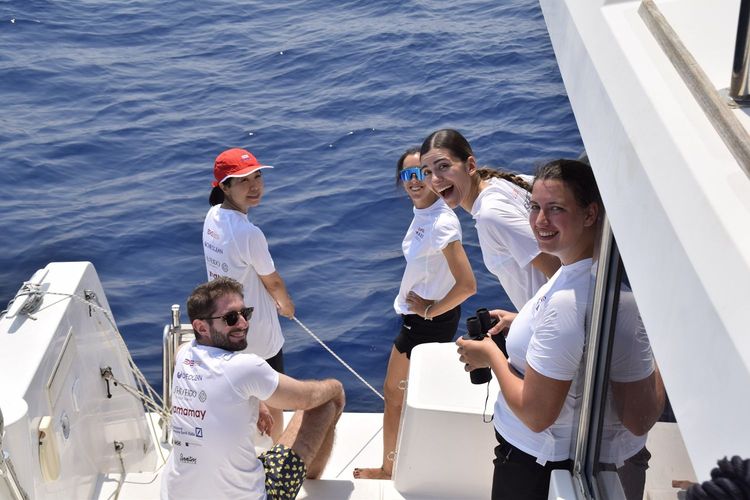
Once again this year, the One Ocean Foundation returned to the Franco Parenti Theater for the fifth edition of the One Ocean Summit Young, organized in collaboration with Intesa Sanpaolo, with the patronage of the Municipality of Milan and the support of the Prefecture and the Milan Local Education Authority, which have supported the Foundation's mission from the outset.
The initiative, dedicated to high school students in Milan and its province, provided an opportunity for discussion and inspiration on the value of the ocean and the impact of individual choices in building a sustainable future. The 2025 edition was dedicated to the role of the Blue Economy as a driver of innovation and new professional opportunities.
At the heart of the debate were the connections between glacial and marine ecosystems, the issue of food sustainability with new resources such as blue crab and algae, and videomaking as a tool for monitoring and scientific communication. The event aimed to bridge the gap between knowledge, innovation, and the future, inspiring younger generations to build a more sustainable world and showing them the Blue Business Opportunities that the ocean offers.
Moderated by actor Leonardo Venturi, the meeting was attended by experts and leading figures from the worlds of academia and innovation: Marco Parolini, professor at the University of Milan, who explored the link between marine and mountain ecosystems, highlighting the global spread of pollution; Luca Cerruti and Carlotta Santolini, founders of Kelpeat and BluEat, respectively, both start-ups that promote seaweed and blue crab as new food resources; and Fabio Benelli, videomaker, who spoke about the power of images in raising awareness and communicating scientific research.
Launch of the Blue Agents Challenge
During the event, the Blue Agents Challenge was presented, an educational project by Intesa Sanpaolo and One Ocean Foundation in collaboration with Giffoni Film Festival and Green Media Lab. The initiative is aimed at high school students to introduce them to the Blue Economy and Blue Business Opportunities. The challenge will be organized in three phases. In the first phase of the challenge, students, guided by their teachers, will develop a sustainable startup idea that responds to environmental challenges related to the sea. The process will focus on innovation and Nature-Based Solutions, such as new materials or solutions to marine pollution. In the second phase, the Giffoni Festival will provide students with educational material on communication and cinematic language. This will guide students in choosing the most suitable narrative form to communicate their Blue Startup idea. In the third phase, the students will create a digital strategy project (REEL, post, or article) to promote blue innovation together with the Green Media Lab team. The three best Startup ideas and communication campaigns (Modules 1-3 of the challenge) will win the opportunity to create a commercial with the support of a Giffoni crew. The final projects will be screened at the Giffoni Film Festival 2026.
Read more articles

One Ocean Foundation and Ocean Film Festival Italia: an alliance to tell the story of the sea

Giffoni Film Festival 2025: Blue Agents Challenge Awards
